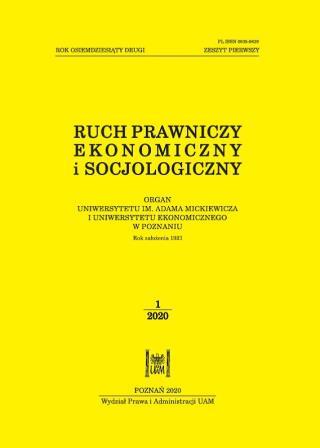Aksjologiczno-prawna analiza plebiscytowego modelu budżetu partycypacyjnego (obywatelskiego) na przykładzie wybranych polskich miast
An axiological and legal analysis of the plebiscite model of participatory (civic) budgeting based on the example of selected Polish cities
Author(s): Urszula K. Zawadzka-PąkSubject(s): Law, Constitution, Jurisprudence, Rural and urban sociology, Economic development, Fiscal Politics / Budgeting
Published by: Uniwersytet Adama Mickiewicza
Keywords: public values; legal norms; axiology; participatory budgeting; civic budgeting;
Summary/Abstract: The purpose of this article is to conduct an axiological and legal analysis of the most popular model of participatory (civic) budgeting in Poland (the plebiscite model). According to the adopted hypothesis, some legal and practical solutions concerning the plebiscite model strengthen public values, while others weaken them. In the research, the combination of three coherent methods was used: (i) a literature analysis, (ii) the dogmatic and legal method, and (iii) interviews conducted with municipal officials responsible for the organization of participatory budgeting (PB), municipal councillors and residents (BP participants). The research covers six Polish cities: Sopot, Gdańsk, Białystok, Kraków, Opole and Warsaw. The axiological and legal analysis of the principles and mode of BP was made using a catalogue of nodal public values, namely values with a significant number of related values (including: human dignity, sustainability, citizen involvement, openness, secrecy, compromise, integrity, and robustness). The research leads to the conclusion that the plebiscite BP in Poland is not axiologically neutral, its principles and mode have both a positive and negative impact on particular nodal public values. The scale of negative impact is definitely greater than the scale of the positive one, although, obviously, the assessment in this respect, even if supported by arguments and scientific analysis, will always remain at least partly subjective.
Journal: Ruch Prawniczy, Ekonomiczny i Socjologiczny
- Issue Year: 82/2020
- Issue No: 1
- Page Range: 283-298
- Page Count: 16
- Language: Polish

